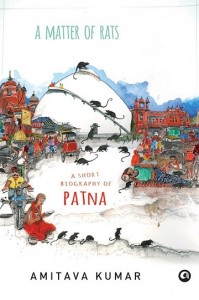 THE LATEST STEP I took in that place of place, immediately before beginning this book, was writing a short piece for the India Ink blog for the New York Times.I had just read Jeff, One Lonely Guy, by Jeff Ragsdale, David Shields, and Michael Logan. Ragsdale, a New York writer and unemployed comedian, had reacted to a breakup by posting flyers near his home that simply said: “If anyone wants to talk about anything, call me. (347) 469–3173. Jeff, one lonely guy.”
THE LATEST STEP I took in that place of place, immediately before beginning this book, was writing a short piece for the India Ink blog for the New York Times.I had just read Jeff, One Lonely Guy, by Jeff Ragsdale, David Shields, and Michael Logan. Ragsdale, a New York writer and unemployed comedian, had reacted to a breakup by posting flyers near his home that simply said: “If anyone wants to talk about anything, call me. (347) 469–3173. Jeff, one lonely guy.”
Jeff, One Lonely Guy was fashioned out of the 60,000 calls and text messages that Ragsdale received in response to his flyers. The responses were varied and fascinating:
“I called to see what the story was.”
“We live in a disconnected society. Did you think up this idea while you were smoking a blunt?”
“I just flew in from L.A. and was in a bad mood, then I saw your sign on the street. Ha! I cast reality shows.”
“Heathcliff it’s me Catherine!”
“Pablo Escobar had a hit out on my father, who was a Communist. My father fought against Escobar and got political asylum in the U.S.”
All this in the first handful of pages. The writer David Shields, who was one of Ragsdale’s teachers, helped edit these field notes from that occult zone Shields calls “Occupy Loneliness.”
In my piece for the Times I proposed that I could put up flyers on the busy streets near my parents’ home asking questions like “Does the best opium still come from Patna?” In one of my writing notebooks is a picture I had torn out from a glossy magazine several years ago. I was in a gym in Florida, and the page left open on a treadmill showed a nineteenth-century drawing of swarthy, dhoti-clad men at work in an immense hall, arranging in neat lines circular mounds of — what?
The text above the picture offered a clue: “Connoisseurs, he says, argue as to the source of the finest opium. Some say the best opium comes from Patna, India, along the southern bank of the Ganges.” My flyer would be an attempt to find out if that was still true.
I also had other questions.
In 1967 there was a famine in Bihar. I knew of this only because my father, a career bureaucrat, served in places like Purnea, a city to the east of Patna. But then I discovered a newsreel, in which I saw the actor Marlon Brando listening to villagers near Patna. I learned that Brando had come to Bihar as the ambassador for the United Nations Children’s Fund. You can hear voices in the background, complaining in Hindi of hunger and of grain being denied to them by corrupt officials.
And then the Englishman providing the voice-over says, “All in all, it was a modest performance from Brando, and definitely a nonspeaking part.”
So that could be another flyer: “Did you see Brando in Patna in 1967?”
I never posted flyers, but this book is made up in part by the answers I received in response to the questions like the one above. It bears mentioning that a man who had met Brando in 1967 in Bihar was not in Patna but in upstate New York. He was an American engaged in famine relief in India in the 1960s.
Objects in the mirror are closer than they appear. In the mirror of literature representation, places find a new intimacy[pullquote align=”right”]In the mirror of literature representation, places find a new intimacy.[/pullquote], not only to us but also to each other. Nonetheless, what the above record doesn’t reveal is the writer’s anxiety. What does it matter that Patna and New York are connected? When I was waiting to hear news about the novel that I have quoted from above, news about whether it had been accepted for publication in the United States, a friend from Patna — a fellow writer — expressed his feelings of impatience in a letter: “I truly believe that getting published in the West is not that important. At best it is a bonus and one earns more, which is a good thing. But as Indian writers, our primary market lies here and it is here in India that we will be finally judged, though I do realize that some critics here do look towards publication in the West as final validation of a writer’s worth. But tell me, is Paul Auster ever bothered about how he is perceived in India? Or whether his books sell at all in India?” I don’t know; I have no idea whether he has heard of Patna. But in the pages that follow, I have written of Patna in the belief that Patna would be of interest to anyone, particularly Paul Auster.
* * *
Amitava Kumar is a novelist, poet, journalist, filmmaker, and Helen D. Lockwood Professor of English at Vassar College. He is the author of A Foreigner Carrying in the Crook of His Arm a Tiny Bomb and Nobody Does the Right Thing: A Novel, Husband of a Fanatic: A Personal Journey through India, Pakistan, Love, and Hate, a New York Times “Editors’ Choice” selection; Bombay—London—New York, a New Statesman (UK) “Book of the Year” selection; and Passport Photos. He is the editor of several books, including Away: The Indian Writer as an Expatriate, The Humour and the Pity: Essays on V. S. Naipaul, and World Bank Literature.












